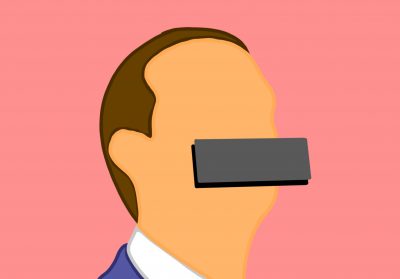Facebook — a company currently embroiled in scandal after a whistleblower leaked internal documents — changed its name to “Meta” on Oct. 28.. The massive tech company argues that Meta, short for metaverse, is the internet’s future,
What is the metaverse? It is the internet enacted in a virtual 3D environment. Mark Zuckerberg, Facebook’s chairman, CEO and controlling shareholder, describes the platform as a virtual community that one enters using an augmented reality headset.

“It’s the next evolution of connectivity,” Victoria Petrock, an emerging technologies analyst, was quoted saying in an NPR article, “where all of those things start to come together in a seamless, doppelganger universe, so you’re living your virtual life the same way you’re living your physical life.”
Regardless of whether or not the metaverse is as groundbreaking as it’s pitched to be, or whether the realities of a virtual world are good for humanity, we should be concerned that with their track record, Facebook — and Zuckerberg in particular — want to lead said concept.
Facebook has been implicated in legal and ethical scandals since its inception. In fact, in September 2006, when the company was only two years old and had about eight million users, one million people joined the “Facebook News Feed protest groups,” arguing that, at the time, the new Facebook News Feed was an invasion of their privacy and personal life.
Later, in 2014, Facebook randomly selected half a million users for an experiment in which the company altered their news feed to show a higher rate of positive or negative posts. Their goal was to prove their algorithm could influence people’s emotions on social media in real time.
The results of this study were published in the Proceedings of the National Academy of Sciences, evoking a rush of backlash and, obviously, accusations of unethical behavior. While Facebook’s data scientists later apologized, Zuckerberg never formally did.
Two whistleblowers — Frances Haugen, whose scathing testimony before the U.S. Congress triggered bipartisanship action pointing to more federal regulation against the company, and one other anonymous source — have leveled public claims this fall alleging that the already massive company actively prioritizes profits and growth over misinformation and hate speech.
The whistleblowers’ claims are likely 100 percent true. Other Facebook critics like Keegan Hankes, a Southern Poverty Law Center senior research analyst, have found that Facebook is notably slow when it comes to removing hate from their social network.
“It’s hard to impugn intent and to understand intent,” Zuckerberg himself is quoted saying in an interview on the topic with Recode. “As abhorrent as some of this content can be, I do think that it gets down to this principle of giving people a voice.”
Stated above are just three of the countless examples in which Facebook has crossed the line, and the above statement from Zuckerberg is precisely why he should not and cannot spearhead the metaverse.
Zuckerberg initially created Facebook as a website for men to rate women in a degrading, sexist manner. He has unethically run his company for the last 17 years.
Zuckerberg is not, and will never be, interested in the well-being of the users on his platform. His loyalties lie in prioritizing profits over people, even if that means allowing vile hatred, social media addiction and misinformation on his forum.
Suppose the metaverse is the future of the internet and will be where individuals across the globe meet and socialize. In that case, it is crucial to construct it with care and moral, ethical considerations.
Zuckerberg is the last person who should build the metaverse.





Strong argument from author here. Completely agree! Never liked Zuck and never will. He should be fired…